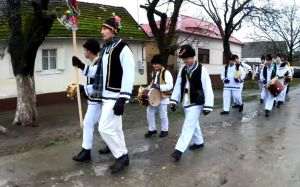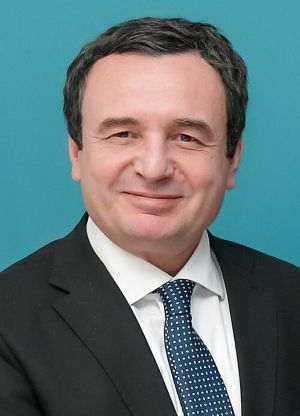• The crisis has caused a 26% drop in the trade between Romania and Spain
Commercial exchanges between Spain and Romania reached a level of EUR 1.333 billion, down almost 26% over the similar period of 2008. Eduardo Prieto Kessler, chief economic and trade advisor with the Spanish Embassy in Romania, said the following in an interview for BURSA: "During the first 11 months of 2009, Spain"s exports to Romania amounted to around EUR 612 million, and Spain"s imports of Romanian products amounted to around EUR 721.5 million. Spain"s exports to Romania decreased by approximately 40% over the similar period of 2008, while Romanian imports remained relatively constant".
Mr. Prieto said that the significant decrease of Spanish exports to Romania was mostly caused by the crisis and the deep decrease in Romanian imports during 2009. In 2009, Spain imported mostly grains from Romania, wheat and corn in particular. Imports amounted to almost EUR 140 million in the first eleven months of 2009, a seven-fold increase over the entire year of 2008. The second largest category of imports from Romania was vehicles and spare parts (EUR 135.7 million), followed by electrical appliances (EUR 73.5 million), machinery and other mechanical devices (EUR 47.1 million), as well as furniture and other interior decorations (EUR 35.2 million).
Eduardo Prieto Kessler said that, in the first eleven months of 2009, Spain"s exports to Romania were dominated by machinery and mechanical devices (EUR 103.1 million), vehicles and spare parts (EUR 75.1 million) -which decrease by more than 175 M euro- , electrical devices and household electrical appliances (EUR 37.8 million), meat and meat products (EUR 34.7 million) and ceramic products (EUR 25.4 million). Spanish exports of ceramic products to Romania dropped three-fold in 2009 compared to 2008.
• Direct Spanish investments in Romania dropped drastically
According to data provided by the Spanish Ministry of Industry and Commerce, direct Spanish investments in Romania in the first nine months of 2009 amounted to EUR 12.6 million in 2009, down almost 85% over the similar period of 2008 (EUR 82 million). Eduardo Prieto Kessler said that -according to the National Office Trade Register- Spain remains the ninth largest foreign investor in Romania at the end of 2009.
According to Mr. Kessler, Spanish investors that come to Romania are mostly attracted by the automobile industry, infrastructure and environmental projects, consulting and engineering works, as well as the production of renewable energy and biofuels. Other areas of interest for Spanish investors are agriculture, tourism and last but not least, homebuilding and entrepreneurship.
At the end of 2009, 3,718 companies with Spanish shareholders were operating in Romania, compared to 3.451 active companies in December 2008. Almost half of these companies operate in the real estate and construction sectors.
Eduardo Prieto Kessler said: "The powerful drop of direct Spanish investments was caused by the crisis and by the lack of liquidity. What"s more, between 2006-2008, these investments grew significantly thanks to the attractiveness of the Romanian real estate sector, in which major companies are present".
Mr. Kessler says that during the times of economic boom, when property prices were rising from one day to the next, huge amounts were invested in the Romanian real estate market: "It"s only natural that in a time of crisis, dominated by uncertainty concerning the evolution of the real estate market, the pace of investments would slow down and investors would become more cautious".
The majority of Spanish companies present on the Romanian real estate market made important acquisitions of land, especially in Bucharest, in good locations. They are now waiting for the market to resume its growth. There are some smaller companies, which, lacking in financial strength, or having taken out major loans from banks, have liquidated or are planning to liquidate their properties in Romania.
• Spain, unfairly compared to Greece
The economic situation of Spain is far different from that of Greece. Eduardo Prieto Kessler said: "Spain is unfairly being compared to other EU countries with financial problems in terms of the issues it is faced with. In 2010 its indebtedness (gross debt to GDP %) will be of around 65% of the GDP, below the Eurozone average of 84%. Spain has no problems with paying back its debt or with the sustainability of its public finances. In order to help the economy recover, the Spanish government launched a fiscal stimulus plan. Now, fiscal restrain measures have been adopted to cut public spending by 50 billion Euros by 2013 in order to bring the deficit back to 3% of GDP. What"s more, Spanish authorities have initiated structural reforms in order to help sustainable economic development, by reforming the pension system and the labor market, as well as through the reorganization of the banking system. In Spain, the banking sector has performed much better than in other countries thanks to a tougher regulation, and the major Spanish banks have made acquisitions of several western banks affected by the crisis".
The construction sector, which reached a weight of 13% of the country"s GDP, has been hit the hardest by the crisis and has caused a high increase in the unemployment rate, which is by now the more important economic problem of the country.
The largest Spanish companies operating in Romania:
- car parts and components: Caucho Metal, CIE, MMF, Bamesa;
- Agri-food industry: Campofrio;
- Construction: FCC, Dytras, Sedesa, GTM, Azvi, Copisa, Peyber, Sogeosa, OHL;
- Real estate: Hercesa, Prasa, Gran Via, Afirma, Grupo Lar, Pryconsa;
- Engineering and consulting:, Inocsa, Eptisa, Prointec, Typsa, Iberinsa, Indra, Idom, Idel, Ged Capital ;
- Energy: Iberdrola;
- Others; La Caixa, Garrigues, Roca, etc.
*•
Trade relations between Romania and Spain are likely to improve this year. While Spanish investors are still cautious when it comes to real estate and construction, they are showing increased interest when it comes to expanding production and their activities in Romania in the industrial sector. According to Mr. Eduardo Prieto Kessler, Spanish companies are interested in industries ancillary to car manufacturing, in industrial parks, as well as in renewable energies, or water treatement (major Spanish companies have already been operating in Romania, for several years, in Timişoara and Cluj). Another strength of Spanish companies operating in Romania are public construction works (in partnership with Romanian companies, many Spanish contractors successfully won major calls for tenders made by ministries or mayoralties), as well as consulting when it comes to the absorption of European funds and more.

















































